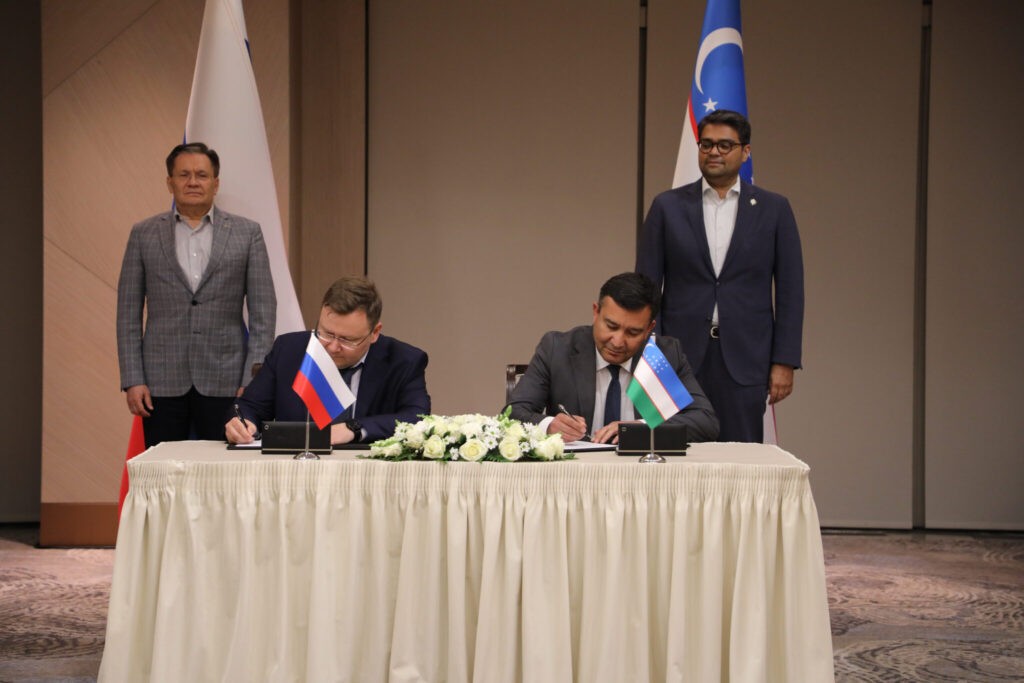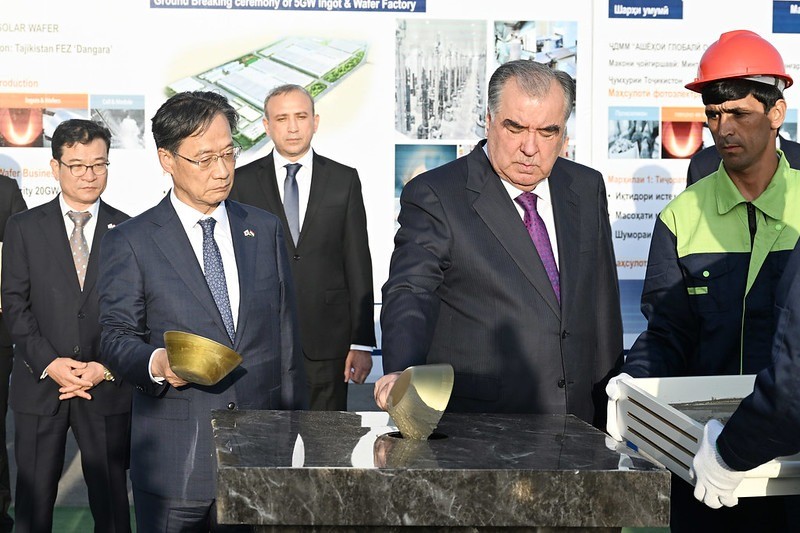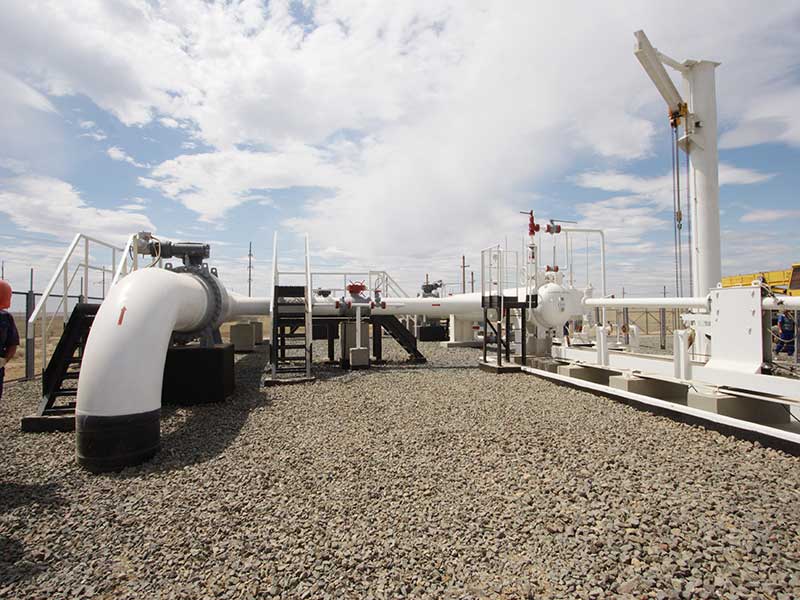Uzbekistan to Build a Nuclear Power Plant
During the Russian president’s state visit to Uzbekistan, a protocol on amending the intergovernmental agreement on cooperation between the two countries in the construction of a nuclear power plant in Uzbekistan was signed, Atom Media reports.
On the margins of the event, Russia’s Atomstroyexport joint stock company and the Directorate for NPP Construction under the Atomic Energy Agency of the the Cabinet of Ministers of the Republic of Uzbekistan signed a contract for the construction of a small-capacity nuclear power plant (SCNPP). The project envisages a Russian-designed ASMP in the Jizzakh region with a capacity of 330 MW (six reactors with a capacity of 55 MW each). Rosatom will be the general contractor for the construction of the plant, with local companies also be involved in the construction.
Thus, Rosatom has signed the first-ever export contract to construct a small-capacity nuclear power plant.
“According to forecasts, the demand for energy resources in Uzbekistan will almost double by 2050, and it is obvious that for the stable operation of the energy system and the development of the economy, our country must provide itself with a basic source of energy. All over the world, we are now seeing a growing interest in the creation of new nuclear facilities, both in terms of building large-capacity NPPs and small modular reactor projects. We believe that expansion of cooperation with Rosatom will allow us to strengthen our energy complex with advanced technologies in nuclear energy,” Azim Akhmedkhadzhaev, director of the Atomic Energy Agency under the Cabinet of Ministers of the Republic of Uzbekistan commented on the signing.
Construction work on the site will begin this summer.
The project of construction of ASMM is based on the latest Russian development – the RITM-200n reactor. This development has been tested in Arctic conditions on the newest Russian icebreakers. Since 2012, 10 RITM-200 reactors have been manufactured for the universal nuclear icebreakers Arktika, Sibir, Ural, Yakutia and Chukotka. The first three have already been commissioned and are successfully fulfilling their obligations to guide caravans of ships in the western region of the Arctic.
The safety of the planned low-capacity nuclear power plant will be achieved through multilevel systems and containment barriers. The combination of active (requiring power supply sources) and passive (operating without a power source) safety systems makes it possible to achieve the highest possible level of plant safety. These systems are implemented to prevent the possibility of an accident, and several levels of barriers incorporated in the plant design avoid the release of radioactive substances into the environment.
According to the IAEA, approximately 50 ASMM designs and concepts are at various stages of development worldwide. Rosatom and Uzatom have yet to announce the cost and planned timing for the completion of the project.








